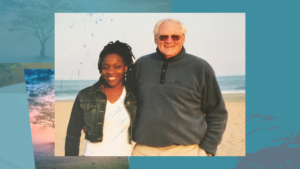It was a sizzling summer’s day like most Sundays in Hotlanta. I had been asked to speak on a Sunday afternoon at a church. It was 1:00 p.m. I knew already the congregation had a long day, so I promised that I would not keep them long or bore them. I hoped. I spoke on the five reasons Christians tend to be inconsistent regarding their health and shared with them my book The Ten Guiding Lights to Health and Wholeness. As I summarized the chapters in The Ten Guiding Lights to Health and Wholeness I had an awkward moment when I reached chapter four, which addressed the fourth commandment:
Remember the Sabbath day, to keep it holy.
The reality hit me as I was standing and teaching in this church on a Sunday that we were all caught up in a vortex of busyness and I, too, had become a participant. As if surreal, I heard myself say, “The church is one of the busiest places.” Half of the congregation looked alert and the other half were, if not asleep, almost asleep. Rightfully so, some people were tired. It had already been a lengthy day for these parishioners. Though Sunday is the day of rest for many believers, it is often not. We fill this day with many activities rather than resting.
After struggling myself with the concept of rest, I have come to realize that the ability to rest has to be an art because so few of us know how to do so. Personally, the ability to rest has been one I had to learn the hard way, which I recount in my book. There are different types of rest, which the Bible clearly addresses. However, does the Bible clearly address “busyness”? I say it does indirectly by alluding to the Sabbath.
There is a reason the fourth commandment begins with the word “remember”. God knew we, human beings—his creation— would forget. The Fall had wired us to forget and to become human doers rather than beings. “Busyness” would be our weakness, because busyness separates us from God and our inner most being—our souls. We have to be reminded to rest physically, mentally and spiritually.
Rest honors the body
Rest is a way of honoring the body—the temple. It is a form of self-care and thus a way of giving oneself compassion. When we make time to rest, we are basically saying we understand our vulnerability as human beings living in these earth suits. But more so, we recognize our divine purpose for these vessels. That is our bodies are for the glory of God.
Rest is a way of honoring the body, which includes mind and soul. Though we may use rest and sleep interchangeably, they are two different activities. When we rest, we tend to remain conscious; whereas when we sleep, we are unconscious. Our bodies need both rest and sleep. But so often rest is ignored because what do we really do with ourselves when we are not asleep? We find something to do that likely distracts us from our inward journey. Certain activities, such as journaling, reflecting, and meditating, can allow us to take breaks from our busyness. They are a way of reconnecting with our soul; and when we involve God in this process, we are consciously and intentionally engaging with Him as well. Too often, we are moving so quickly through life that we lose touch with ourselves and miss many ‘God moments’ as well.
Rest is a way of honoring our relationship with God. We reduce our movements, so we can hear His still small voice. We quiet our hearts so we can rest in Him.
Yes, God knew we would forget. God knew we would need to be reminded.
To learn more about honoring the body through rest, order your copy of The Ten Guiding Lights to Health and Wholeness.









